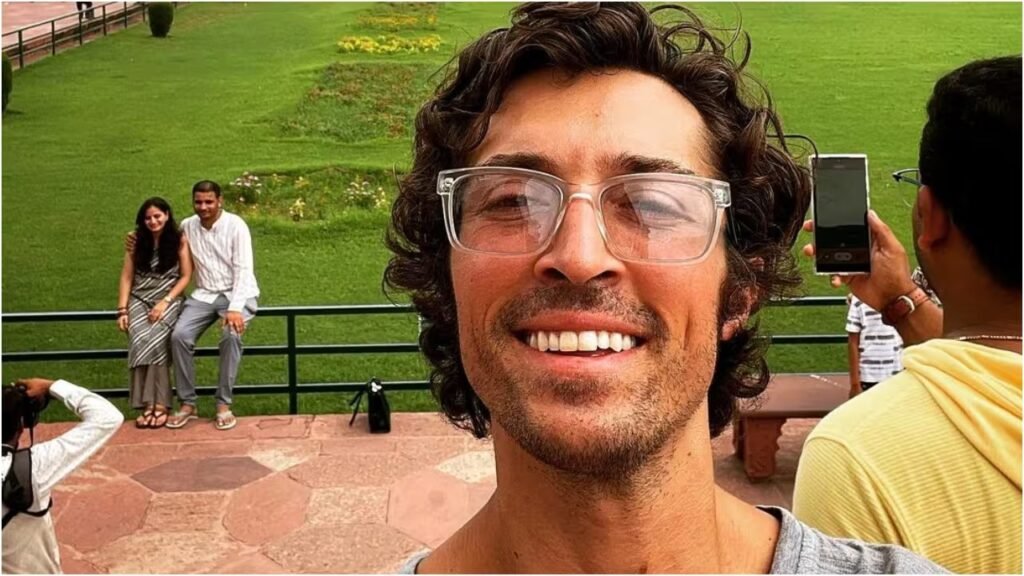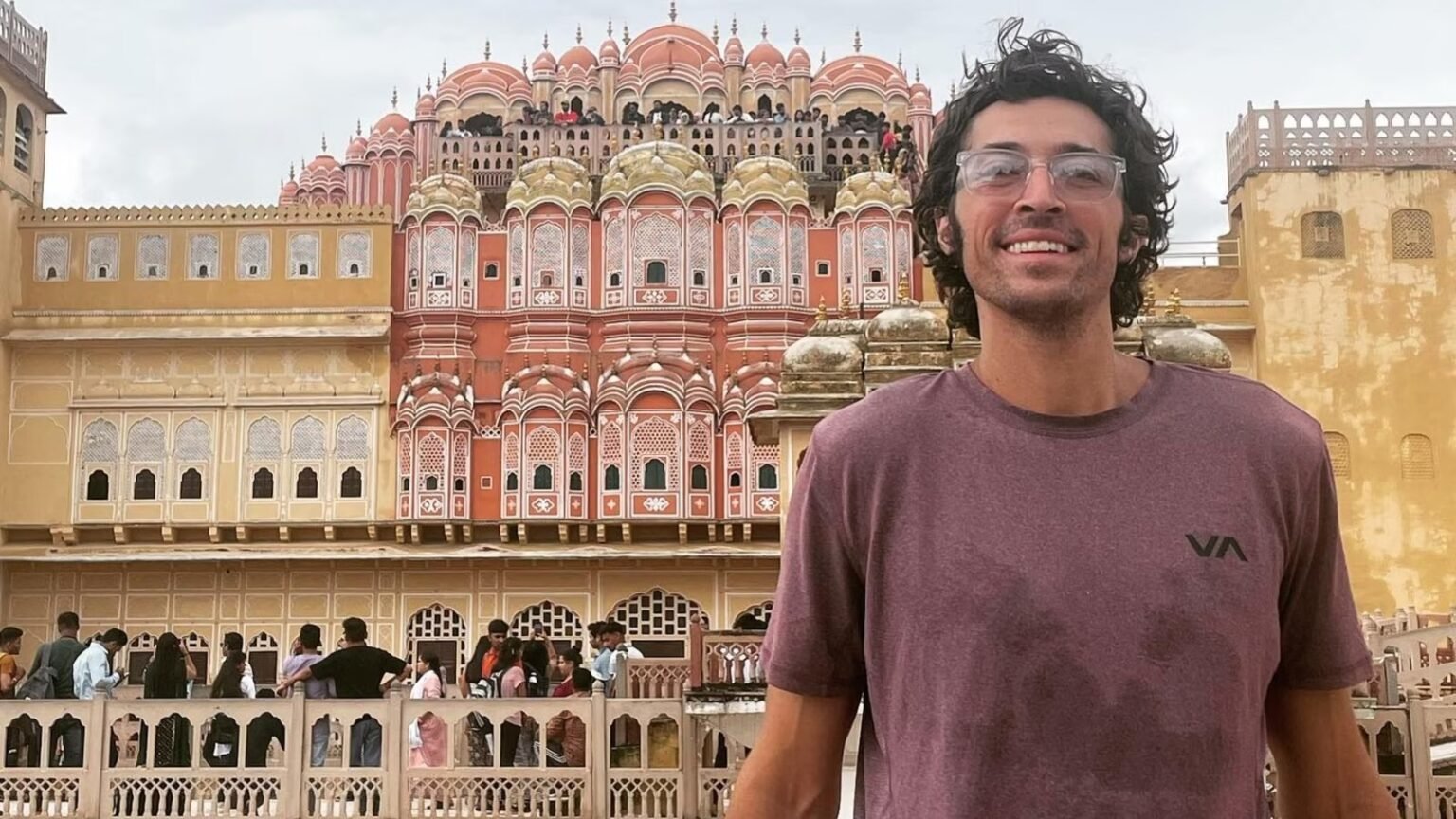In early October 2025, American tech entrepreneur Tony Klor, known online as @TonyCatoff– became an overnight viral sensation for a tweet that perfectly captured the contrast between two world leaders. With a cheeky, yet heartfelt message, Klor proudly flaunted his newly issued five-year Indian business visa, praising Indian Prime Minister Narendra Modi’s welcoming approach while simultaneously taking a jab at US President Donald Trump’s protectionist stance on foreign workers.
His viral post read:
“It’s official! India is opening its doors to foreign blockchain & AI builders. I’ve just been granted a girthy 5-year Indian visa. Trump says foreigners go kick rocks. Modi says Welcome home, bhai.”
A Digital Nomad’s Celebration Goes Global
Tony Klor, whose full name is Klor Anthony Louis, is no stranger to India’s growing tech ecosystem. Having worked across blockchain and artificial intelligence for several years, he described India as “the next Silicon Valley of the world.” When he received his B-1 business visa, valid from September 23, 2025, to September 22, 2030, he decided to share the moment in pure social-media style: with humour, cultural flair, and a subtle dig at US policies that often discourage foreign talent.
Within hours, his post had thousands of shares and comments. Indian tech enthusiasts and entrepreneurs chimed in, hailing his words as symbolic of India’s growing global appeal. Some users humorously dubbed it a “Visa Flex,” while others invited Tony to Bengaluru’s thriving startup corridors, promising chai, chapati, and co-working spaces ready for AI dreamers.
Key Details:
| Category | Details |
|---|---|
| Name | Tony Clor |
| Profession | (To be confirmed — e.g., Entrepreneur / Athlete / Musician) |
| Estimated Net Worth (2025) | (To be determined based on verified data) |
| Known For | (Major projects or achievements) |
| Source of Income | (Business, career role, endorsements, etc.) |
| Nationality | (Country of origin or residence) |
| Years Active | (Professional career span) |
| Major Highlights | (Awards, career milestones, notable ventures) |
| Social Media Presence | (Handles or follower metrics, if applicable) |
Why Klor’s Comment Struck a Chord
Tony’s playful comparison, “Trump says foreigners go kick rocks, Modi says welcome home bhai,” went beyond humour; it captured two conflicting visions of globalisation. Under President Trump, America has leaned toward tighter immigration policies, especially focusing on limiting the entry of skilled foreign professionals. This has frustrated many in the global tech community who previously viewed Silicon Valley as the promised land for innovation.
In sharp contrast, Prime Minister Narendra Modi’s India has been actively positioning itself as an open, innovation-forward destination for technology experts and investors from around the world. By streamlining visa processes, introducing long-term business visas like Tony’s B-1, and pushing for the integration of blockchain and AI into its digital economy, India is crafting a narrative of inclusivity and readiness to attract talent, no matter the passport.
What the B-1 Visa Really Means
Tony’s five-year B-1 visa is not an employment visa but a long-term business permit that allows foreign nationals to stay for up to 180 days per visit. It is typically given to those attending conferences, meetings, or exploring business opportunities in India. For global entrepreneurs like Tony, however, it’s a bridge to long-standing collaboration with Indian partners, investors, and innovators.
The appeal is obvious: a multi-entry visa valid for five years enables participation in India’s booming technology ecosystem, particularly in blockchain development, AI applications, and fintech infrastructure, without the administrative friction that many face in Western economies.
The Reaction: From Memes to Meaning
The internet’s reaction blended humour and genuine celebration. Comments like “Finally, congrats, this is my first time seeing an Indian Visa Flex” and “India knows the future is being written in blockchain and AI” flooded Tony’s timeline. Many saw his post as emblematic of India’s rising soft power in tech and diplomacy, a counter-narrative to the old days when engineers flocked westward in search of opportunity.
India’s mainstream media outlets, from NDTV to Hindustan Times, quickly picked up the story, interpreting Klor’s tweet as more than just a techie’s banter. They viewed it as a reflection of how India’s policy of “Digital Bharat” and global innovation partnership is resonating far beyond its borders.
India’s Global Innovation Moment
Klor’s post arrives at a strategic time for India. In recent years, Modi’s administration has championed initiatives such as the India AI Mission, the expansion of Digital Public Infrastructure (DPI), and the promotion of foreign tech corridors, including partnerships with the U.S., Japan, and the European Union. The aim: to establish India as the preferred destination for global innovators.
The government’s focus on long-term visas and simplified onboarding for foreign founders mirrors the success of the Startup India mission with domestic entrepreneurs. For digital expatriates like Tony, this signals more than convenience; it marks an invitation to become stakeholders in India’s digital journey.
When Tweets Reflect Policy
Though framed as humour, Tony’s post serves as an organic endorsement of India’s strategic openness. Where America increasingly shelters its job markets, India’s message appears to be: “We’re open, come build with us.” It’s a sentiment resonating with international professionals disillusioned by restrictive immigration regimes elsewhere.
Moreover, Tony’s light-hearted “Welcome home bhai” isn’t just slang; it represents cultural solidarity. It shows how India’s soft power is extending to those who aren’t just investors, but genuine cultural participants.

Beyond the Viral Moment: A Symbol of Changing Times
What began as a casual tweet from a tech builder became a transcontinental talking point. Tony Klor’s tweet wasn’t merely a visa flex; it symbolised India’s transformation into a magnet for foreign innovation. His words captured an evolving global narrative: as the Western world turns inward, India continues to welcome.
For young professionals, startup founders, and AI enthusiasts worldwide, the post reaffirmed a quietly significant truth: the future of global tech won’t be built solely in Silicon Valley, but also in Bengaluru, Pune, and Hyderabad.
Tony Klor’s enthusiasm, half-joking, half-political, reflects that shift in power centres. India, once seen as the world’s outsourcing hub, is now becoming the headquarters of innovation itself. And as Tony cheekily wrote, it’s also a place ready to say, “Welcome home, bhai.”
